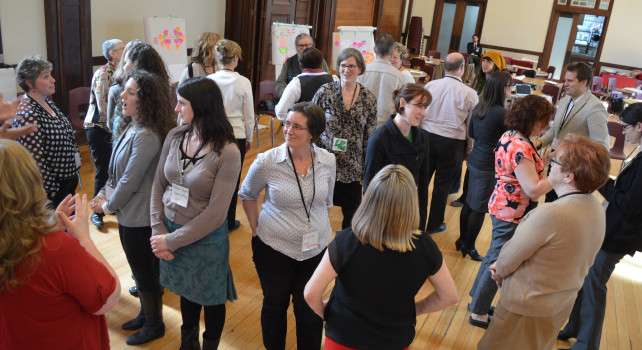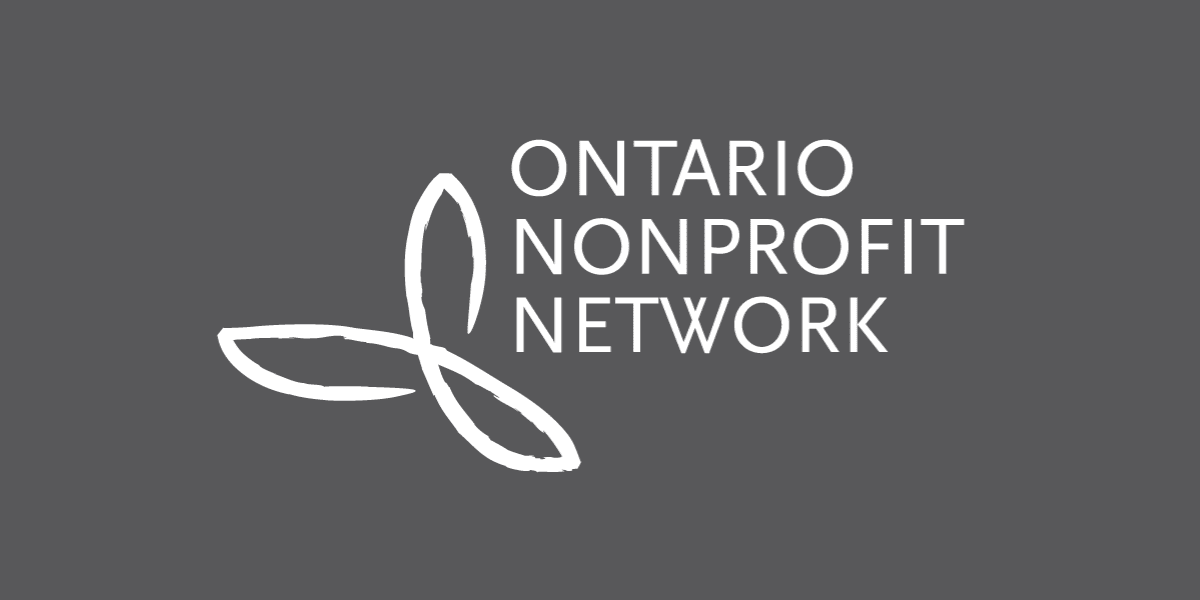Reforming Police Record Checks
On June 3, 2015, the Government of Ontario introduced Bill 113, the Police Record Checks Reform Act. This was a milestone in a multi-year drive to improve the police record checks system in the province. With Bill 113 now starting to make its way through the Legislature, it’s a good time to take stock of where we are with police record checks and look ahead to further advocacy on the issue.
We can do better!
ONN has been working on the issue of record checks since March 2012, when we asked the Ontario government for improvements in fees and timelines for processing police record checks, as well as greater clarity on when and why checks are needed. Organizations like the Canadian Mental Health Association-Ontario, the Schizophrenia Society of Ontario, the Canadian Civil Liberties Association, the John Howard Society of Ontario, and the Ontario Association of Patient Councils had been advocating for police record check reform for years through the Police Records Check Coalition. We also realized that the issue affected a broad range of nonprofits as employers and stewards of volunteers.
It was clear that inconsistent practices across Ontario about the type and detail of information contained in a police record check were creating uncertainty and challenges for nonprofits. Inappropriate information was sometimes being released in police record checks- particularly non-conviction records such as mental health interventions and criminal charges that had been withdrawn or resulted in an acquittal. Many nonprofits were concerned about how to interpret this information with respect to privacy, human rights, and community safety.
Last spring, ONN talked about the need for a province-wide solution in “Police Record Checks: We Can Do Better”. Public momentum gathered when a Toronto Star investigative report highlighted the impact on individuals, inspired by reports released by the Canadian Civil Liberties Association and the John Howard Society of Ontario that spoke to the scale of the issue- potentially affecting millions of Ontarians.
Making provincial progress
ONN partnered up with the John Howard Society and the Canadian Civil Liberties Association, along with the Ontario Association of Chiefs of Police (OACP) and the Ontario Chamber of Commerce, to press for changes. In December 2014, ONN and partners met with Minister Naqvi to ask for a province-wide solution based on the OACP’s voluntary Law Enforcement and Records Managers Network (LEARN) Record Check Guideline for police services. The Guideline had been updated in 2014 to remove police interactions, including mental health apprehensions, from all police record checks. The majority of police services were using it- but not all. Faced with such a broad alliance united in support of new legislation based on the LEARN Guideline, the Minister could hardly refuse. He promised to introduce legislation by spring- and did.
So what’s in the legislation?
Bill 113 will clarify what kinds of information will be released in a police record check. It provides consistent language across the province for the three levels of checks: Criminal Record Checks; Criminal Record and Judicial Matters Checks; and Vulnerable Sector Checks. The legislation also specifies the time limits on the non-conviction information released in Vulnerable Sector Checks under the “Exceptional Disclosure” provision, which also establishes a test for the very narrow circumstances under which this information may be released.
Other provisions in the bill relevant to nonprofits include:
- A requirement that an individual give consent before the information in her/his police record check is released to a third party (e.g. a prospective employer)
- A requirement for police services to establish a standard process for correcting misinformation
- More consistency around police record checks across a number of existing Acts, such as those that govern child care and long-term care for the elderly
ONN released a joint statement with our partners supporting the legislation. Bill 113 is a great example of what can be achieved when nonprofits work together and across sectors to bring their voices to government.
What happens next?
We expect Bill 113 to take a year to proceed through the House and become law. We will reach out to opposition members in hopes of seeing all-party support.
ONN will advocate for the development of regulations under the Act, especially to ensure that fees, timelines and other processing barriers are addressed. We anticipate that the regulations will also provide clarity on the circumstances in which the different levels of police record checks should be used.
Meanwhile, ONN will work with our partners from the nonprofit and government sectors to educate community nonprofits on the appropriate use of police record checks in the context of an overall employee and volunteer screening approach.
Legislation + Central screening + No-cost checks= Helping nonprofits focus on their missions
Ultimately, we’d like to see police record checks legislation complemented by two systems that would further reduce the administrative burden on nonprofits:
- A central screening service that provides clear results (pass/fail/adjudicate/appeal) for vulnerable sector checks (in place in British Columbia) instead of police record information that nonprofits must interpret themselves
- A program that covers the costs of volunteer police record check for eligible nonprofit organizations (as in Alberta).
How can organizations support sector change?
Police record checks are important tools to help nonprofits and protect the vulnerable persons we serve, but they are not the only- or even the main employee or volunteer screening tool. The over-reliance on police record checks has contributed to rising costs and increased timelines for processing. Organizations must ensure that asking for a police record check is clearly related to a legitimate requirement of the job. If an employee or volunteer will have only casual or occasional contact with vulnerable persons, a check may not be necessary.
We encourage all nonprofits to re-evaluate the need for police record checks in your organization and to consider other tools in a more holistic screening process. With 55,000 organizations, 5.2 million volunteers and 1 million paid staff, together we need to ensure there are fewer barriers to employment and volunteerism. We can all contribute to change by rethinking our approach and shifting towards best practices.
About the author
Liz Sutherland is the Policy Advisor for ONN.
Related resources
CBC: Ontario police record checks disclosure to be limited
CP24: New law to keep mental health, non-criminal info from appearing in police background checks
Kingston Herald: Legislation to Clarify Police Records Checks Limits
Toronto Star: Ontario moves to limit police sharing non-conviction information





